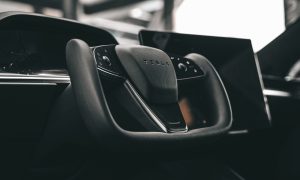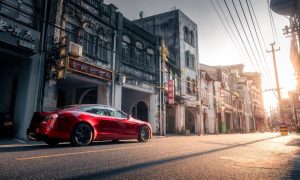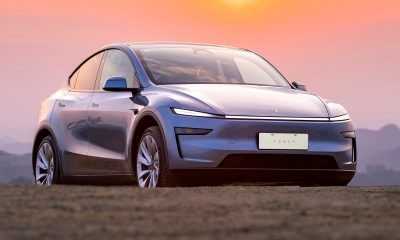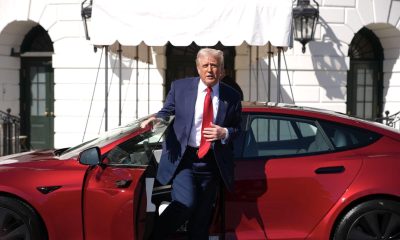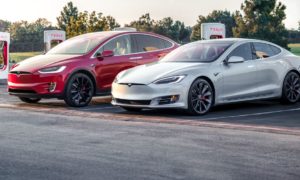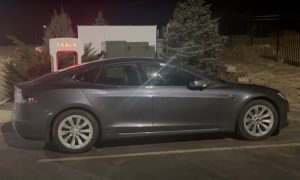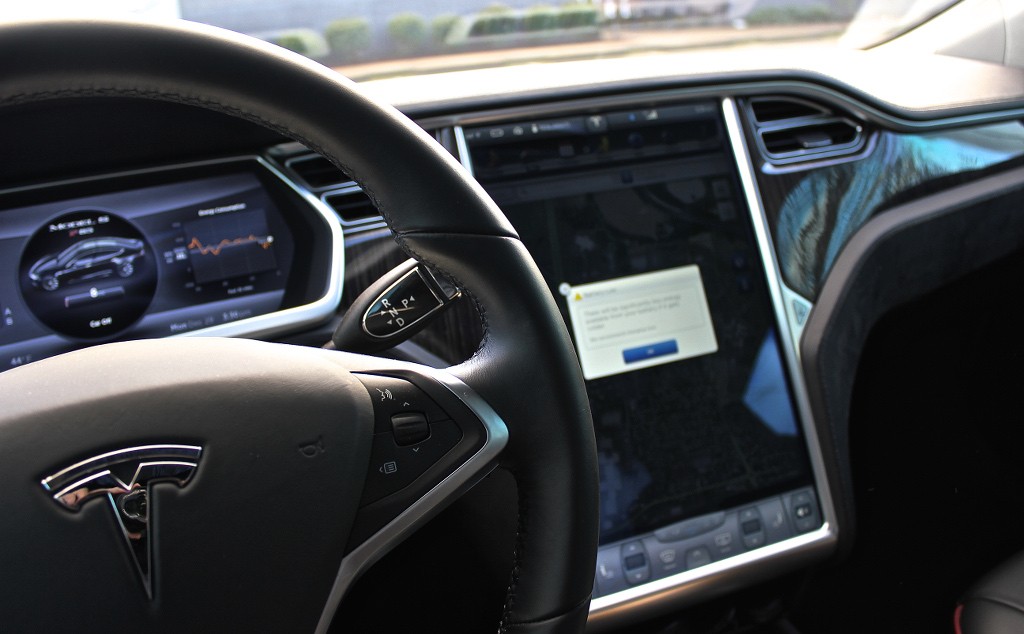

News
Tesla issues 2013 Model S airbag replacement initiative amid Takata recall
Tesla has issued a Model S safety update, stating that the passenger airbags in certain 2012-2013 Model S vehicles would be affected by the ongoing global Takata airbag recall. According to the California-based electric car maker and energy firm, Tesla would be following the schedule set by the NHTSA, which mandated that defective airbags in affected vehicles be replaced immediately.
Tesla prides itself as a company that manufactures some of the safest vehicles on the road, and this is evident in the Elon Musk-led electric car maker’s latest safety update to its customers. In Tesla’s note, the electric car firm stated that while there have been no untoward incidents reported so far with regards to the Model S’ Takata airbags; the company is taking the initiative to replace the defective inflators now. The carmaker further noted that it would be contacting all Tesla Model S owners who are affected by the Takata recall. Thus, no immediate action is required from those whose vehicles are affected by the issue.
The California-based electric car and energy firm also reminded its customers that Takata’s faulty airbags affect millions of vehicles on the road. Considering the scope of the issue, Tesla would be following the NHTSA’s guidelines and replacing affected vehicles’ airbags in phases, depending on the electric cars’ manufacturing date. According to Tesla, however, it would be continuing its airbag replacement initiative even if regulators do not require a full-scale recall.
One thing that Tesla did emphasize in its latest safety update, however, was the fact that eventually, Model S vehicles that were manufactured up to late 2016 might subsequently be called back for possible airbag issues. Currently, the ongoing Takata recall only affects Model S cars that were produced from 2012-2013. Considering that Takata airbags were fitted on the flagship sedan well after those years, however, recalls for 2014-2016 Model S would likely happen. Tesla did state, however, that Model X and Model 3 vehicles, as well as the first-generation Tesla Roadster, are not affected by Takata’s faulty airbags, since these cars were not equipped with the firm’s defective inflators.
Takata’s faulty airbags have become one of the biggest scandals in the auto industry during the past few years. The defective units, which have a tendency to shoot shrapnel into passengers during impact, have caused at least 139 injuries and two fatalities, according to a Car and Driver report. Being one of the world’s most prolific airbag manufacturers, Takata was the brand of choice for many car makers including Tesla, which was just an electric car startup then.
Recalls for Takata’s faulty airbags were initiated eventually, but by that time, injuries caused by the defective inflators were already piling up. By August 2015, Tesla became one of only two carmakers that were not mandated to recall its vehicles due to Takata’s faulty airbags. In the following months, however, it became evident that some Model S were equipped with defective airbag units. By early 2017, Tesla issued a recall for 2997 Model S sedans that were manufactured in 2012.
Tesla’s official safety update for the Model S could be viewed here.
News
Tesla China vehicle registrations rise 51% in April’s fourth week
In the week ending April 27, Tesla China saw 10,300 new vehicle registrations.
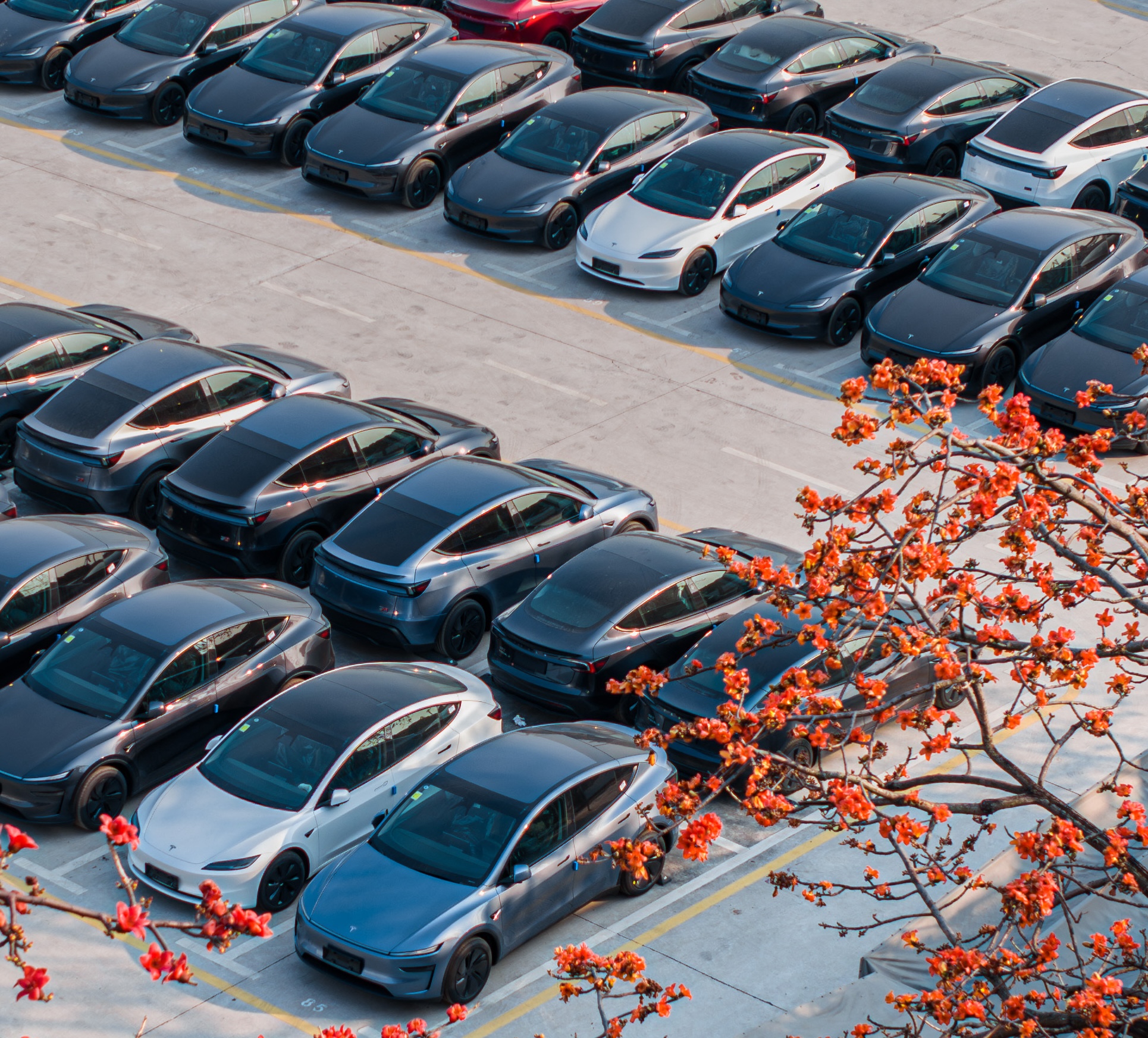
Tesla China’s new vehicle registrations saw a notable rise in the week of April 21-27, 2025. Over the week, the electric vehicle maker’s registrations saw an impressive 51% week-over-week rise, suggesting that domestic vehicle deliveries are on the rise once more.
Tesla China Results
In the week ending April 27, Tesla China saw 10,300 new vehicle registrations. This represents a notable rise from the company’s registration numbers in the past weeks of April. For context, Tesla China saw 3,600 registrations in the week ending April 6, 5,400 registrations in the week ending April 13, and 6,780 registrations in the week ending April 20, 2025.
Considering that April is the first month of the second quarter, expectations were high that Tesla China was allocating Giga Shanghai’s output for vehicle exports. With 10,300 registrations in the week ending April 27, however, it would appear that the company’s domestic deliveries are picking up once more.
Tesla China does not report its weekly sales figures, though a general idea of the company’s overall perforce in the domestic auto sector can be inferred through new vehicle registrations. Fortunately, these registrations are closely tracked by industry watchers, as well as some local automakers like Li Auto.
Tesla Model 3 and Model Y in Focus
Tesla China produces the Model Y and Model 3 in Giga Shanghai. Both vehicles are also exported from China to foreign territories. As per industry watchers, it would appear that both the Model 3 and Model Y saw an increase in registrations in the week ending April 27.
The Model 3, for one, appears to have seen 3,200 registrations in the week ending April 27, a 14% increase from the 2,800 that were registered in the week ending April 20. For context, Tesla China saw just 1,500 new Model 3 registrations in the week ending April 13 and 1,040 registrations in the week ending April 6.
The Model Y, on the other hand, saw 7,100 registrations in the week ending April 27. That’s a 77.5% increase from the 4,000 that were registered in the week ending April 20. Tesla also saw 3,900 registrations in the week ending April 13, and 2,540 registrations in the week ending April 6, 2025.
News
Volkswagen teams with Uber for robotaxi service with the ID. Buzz
Volkswagen and Uber team up to launch a driverless ID. Buzz robotaxi fleet in U.S. cities. Testing starts in LA this year.
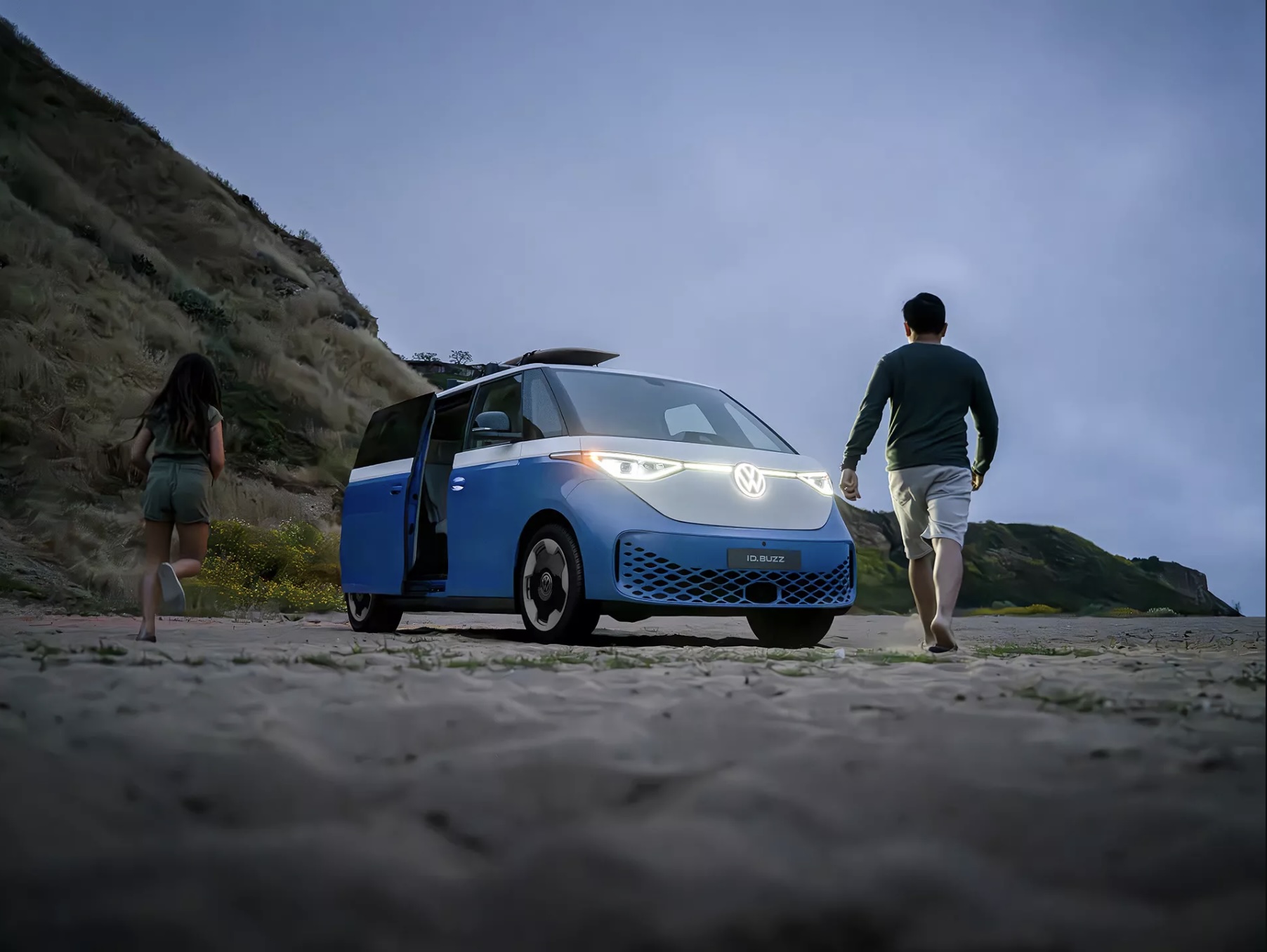
Volkswagen of America and Uber unveiled a plan to launch a commercial robotaxi service using autonomous electric ID. Buzz vehicles across U.S. cities over the next decade. The partnership marks a significant step for Volkswagen’s autonomous vehicle ambitions, leveraging Uber’s ride-hailing expertise.
The service will debut in Los Angeles by late 2026, with human safety operators initially overseeing the fleet before transitioning to fully driverless operations in 2027. Volkswagen ADMT, the German automaker’s autonomous subsidiary, will begin testing in Los Angeles later this year upon securing a testing permit from the California Department of Motor Vehicles. The California Public Utilities Commission will oversee permits for the commercial ride-hailing phase.
“Volkswagen is not just a car manufacturer — we are shaping the future of mobility, and our collaboration with Uber accelerates that vision,” said Christian Senger, CEO of Volkswagen Autonomous Mobility. “What really sets us apart is our ability to combine the best of both worlds–high-volume manufacturing expertise with cutting-edge technology and a deep understanding of urban mobility needs.”
The Trump administration’s recent policy shift, announced last Thursday by Transportation Secretary Sean Duffy, supports initiatives like VW and Uber’s partnerships by easing federal safety rules and crash reporting requirements on autonomous vehicle development. According to Duffy, the United States government wants to outpace Chinese competitors in autonomous vehicle development.
Volkswagen ADMT, which launched publicly in July 2023, has been testing 10 ID. Buzz vehicles equipped with Mobileye’s autonomous technology in Austin, reported TechCrunch. Two years ago, Volkswagen focused on selling self-driving vans and fleet management software rather than building its own ride-hailing service. VW’s strategy toward autonomous vehicles appears to have shifted, as reflected in its Uber partnership.
Uber will strengthen its autonomous vehicle portfolio through its partnership with Volkswagen. The ride-hailing service company has secured deals with over 14 firms, including Waymo in Austin and a forthcoming launch in Atlanta.
The Volkswagen-Uber collaboration positions both companies to capitalize on the growing robotaxi market. With testing imminent and regulatory support increasing, the ID. Buzz fleet could redefine urban mobility, blending Volkswagen’s manufacturing prowess with Uber’s ride-hailing network to compete in the evolving autonomous vehicle landscape.
News
These automakers are pushing to overturn California’s gas car ban
This lobbying group represents Detroit’s Big Three automakers, as well as several others selling vehicles in the U.S.
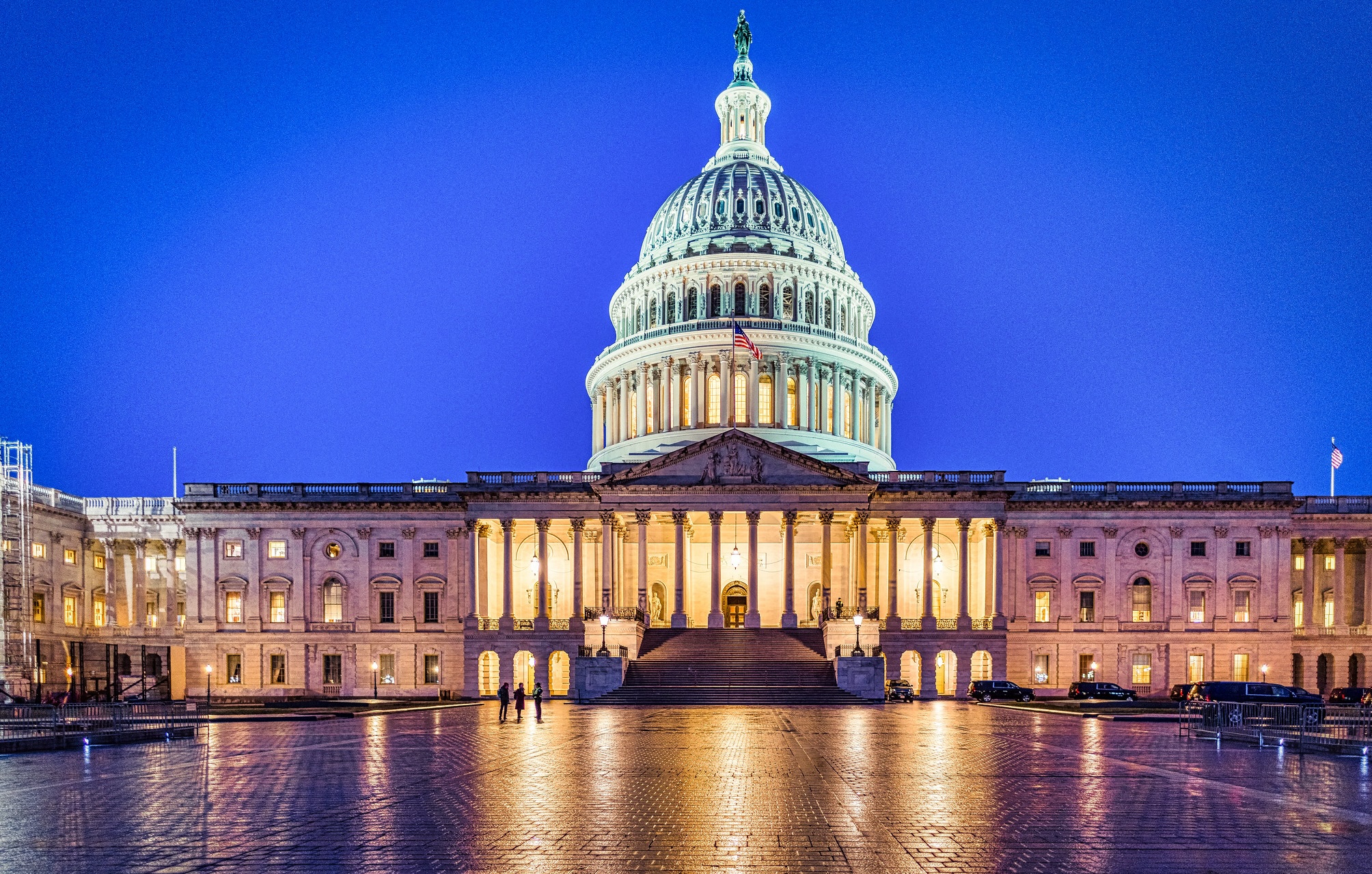
A lobbying group made up of several automakers is pushing Congress to ban California’s plan to phase out and ban new gas car sales altogether by 2035, ahead of a vote that could also affect the 11 other states that have followed with similar plans.
The Alliance for Automotive Innovation (AAI), an organization representing the interests of Ford, General Motors (GM), Stellantis, Toyota, Volkswagen, Hyundai, and several others, recently sent a letter to Congress requesting that it overturn a waiver granted to California letting it set its own emissions rules.
Later this week, the U.S. House of Representatives will vote on overturning the waiver granted to California under the 1968 Clean Air Act to impose the tightened standards, according to Reuters. In the previous letter, the AAI argued to Congress that automakers would be “forced to substantially reduce the number of overall vehicles for sale to inflate their proportion of electric vehicle sales,” adding that it would also boost prices and reduce competition in the market.
The waiver, enacted under the Biden administration’s Environmental Protection Agency (EPA), allows California to mandate at least 80 percent electric vehicle sales by 2035 under the Clean Air Act. The passage of disapproval of the waiver is being ushered under the Congressional Review Act, and an initial vote in the House of Representatives is set to take place on Wednesday.
READ MORE ON STATE EMISSIONS RULES: Tesla could face emissions credit tax in Washington
The U.S. Court of Appeals for the District of Columbia backed the EPA’s decision to grant the waiver last April, following a challenge from 17 Republican-run states. The group claimed that California was being given unconstitutional regulatory power in the decision, adding that other states didn’t have those same powers.
In December, the U.S. Supreme Court agreed to hear out bids from Valero, the AAI, and other groups to oppose the 2035 California gas car sales ban, which would begin phasing them out in 2026 if the waiver remains in place.
You can see the full list of members of the AAI below, including automakers and a handful of other tech companies.
Companies represented by the Alliance for Automotive Innovation (AAI)
Here’s the full list of AAI members, according to the lobbying group’s website:
- AESC
- AISIN
- Aptiv
- Autoliv
- BMW Group
- Bosch
- Denso
- Emergency Safety Solutions
- Ferrari
- Ford
- GM
- Harman
- Honda
- Hyundai
- InEos Automotive
- Infineon
- Isuzu
- Jaguar-Land Rover
- Kia
- LG
- Luminar
- Magna
- Mazda
- McLaren
- Mercedes-Benz
- Mitsubishi Motors
- Nissan
- Nuro
- Panasonic
- Porsche
- Qualcomm
- RV Industry Association
- Samsung
- SiriusXM
- SK On
- Stellantis
- Subaru
- Texas Instruments
- Toyota
- Uber
- VinFast
- Volkswagen
- Volvo
- Zoox
California proposal to allow self-driving tests for heavy-duty trucks
-
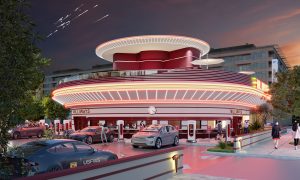
 News1 week ago
News1 week agoTesla’s Hollywood Diner is finally getting close to opening
-
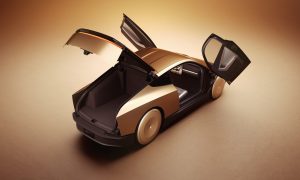
 Elon Musk2 weeks ago
Elon Musk2 weeks agoTesla doubles down on Robotaxi launch date, putting a big bet on its timeline
-
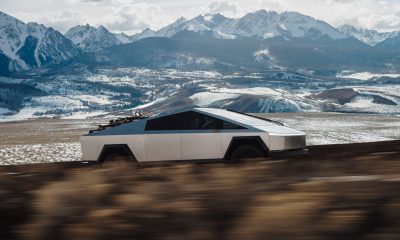
 News4 days ago
News4 days agoTesla is trying to make a statement with its Q2 delivery numbers
-

 News2 weeks ago
News2 weeks agoTesla’s top investor questions ahead of the Q1 2025 earnings call
-

 News2 weeks ago
News2 weeks agoUnderrated Tesla safety feature recognized by China Automotive Research Institute
-
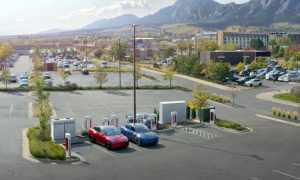
 News2 weeks ago
News2 weeks agoTesla reveals its Q1 Supercharger voting winners, opens next round
-
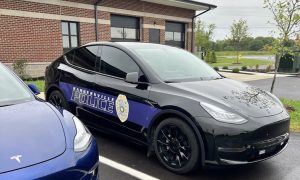
 News2 weeks ago
News2 weeks agoTesla police fleet saves nearly half a million in upkeep and repair costs
-
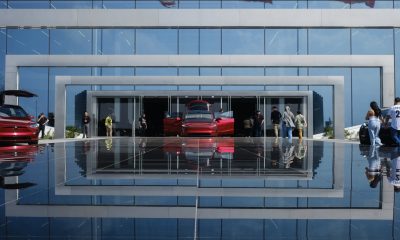
 Investor's Corner7 days ago
Investor's Corner7 days agoLIVE BLOG: Tesla (TSLA) Q1 2025 Company Update and earnings call

